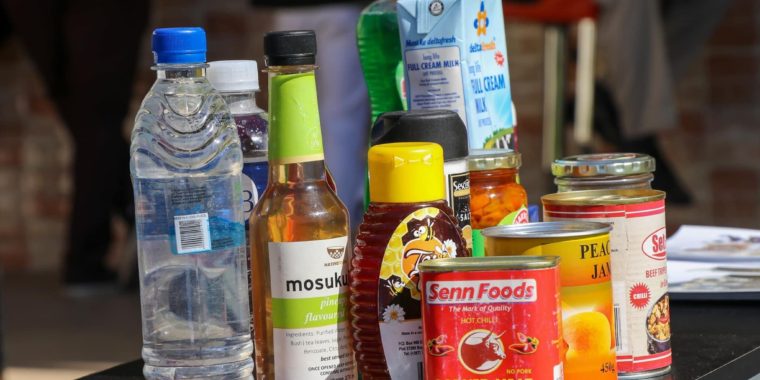Last year, during the Covid19 related lockdowns as borders closed and we had threats of shop shelves running out of food and consumables, our dependence on South Africa and the need for Batswana to start producing and manufacturing our own consumables was brought to the fore of public debate. It suddenly became apparent to most, why it was important for Botswana to as a society stand up and actively work towards being self-sufficient especially for low complexity goods which we have always imported from South Africa. In 2020 alone, the total import bill stood at about BWP70 billion, most of which was low complexity consumables which went onto our shelves in grocery stores and we consumed on a daily basis. Like many Batswana I started to look at this latent market which I could possibly serve, especially considering that a number of policies and government efforts were already in place to try to make it easier for us to enter the market.
I therefore started this journey last year and, in a bid, to put together a business plan, I ended up at the Business Intelligence Unit of Botswana Investment and Trade Centre (BITC) where they assisted me with market statistics for both local and international markets. Whilst I was there, I noticed a campaign they were having in trying to reduce our import bill by assisting local manufacturing companies on their journey. I noticed the campaign had been running for the past few years under the name #PushaBW, which aims to promote local products, so earlier this month I decided to go back to BITC to find out more on how they can assist in my quest to supply the local market with my product.
Any entrepreneur will tell you that their biggest problem is always access to financing but they will tell you an even harder issue to deal with is getting your product in front of customers in the least costly, most efficient and consistent manner. With a market largely dominated by South African retail stores, I had always been told that Batswana products were being refused shelf space in these stores so I went about seeing how BITC can assist me. When I got to the BITC offices in CBD I was directed to the Brand Botswana Department which houses and drives the #PushaBW campaign.
The #PushaBW campaign was launched a few years ago, refreshing the Buy Botswana campaign. Its main objective is to promote local products by Batswana by giving them a platform to increase visibility and hopefully market traction and sales. This is important because it stimulates economic growth and helps with job creation and reduction of unemployment. The campaign aims to give Botswana products awareness by using the different platforms that BITC has including their social media, including the products in their Botswana Pride catalogues, providing opportunities for the producers to showcase their products at exhibitions, both locally and internationally as well as helping with in-store branding and promotions with select partner companies.
To get enrolled with the #PushaBW campaign, one has to register with BITC. The requirements are not onerous, as one simply has to submit company details and profiles to BITC and after vetting, they are registered in their database. In the case where it is necessary, the team will also assist with trainings and workshops that try to upskill the entrepreneur on branding and packaging. They will also give your product a Botswana Pride mark to ensure people can see that the product is a locally produced product.
With regards to market access, the team will assist the producer get access to retail stores, both local and multinationals. In the past, #PushaBW has assisted many entrepreneurs get their products on the shelves of most successfully Squaremart and Trans Africa, though the appetite from stores such as Pick n Pay, Spar and Woolworths is also great. Unfortunately, to get listed in these stores, the specific stores have basic standards which must be followed for them to list you which we must fulfil. The stores want to be assured of consistency of supply and quality (normally implies BOBS, SABS or NAFTEC approval in terms of food related products). They would also expect to see branding and packaging at a particular standard, a barcode and ingredients listed on the packaging. These requirements differ from shop to shop but generally they allow for listing in any shop and also are a great springboard when wanting to enter other markets where these are legal requirements. When ready, the BITC team facilitates meetings for the producer and buyers from the shops and also sits in negotiations to assist in any manner that the producer needs.
All of these preparations give an excellent foundation for when you finally want to take on the world with your product. At that point you would be moved to the Export Development and Promotion Department who would give you similar assistance in the region and internationally. The producer would be enrolled in the Botswana Exporter Development Program where you would be capacitated and assisted to improve product quality, branding and packaging, production and getting up to buyer requirements and standards. Similarly they would also give access to and facilitate relationships and meetings with international companies who can consume your product.
After the visit to the BITC offices, I felt like I had a clear vision and path on what I would need to do to grow and serve my product’s market, firstly at home, then internationally. For the first time, I felt confident that you will see my product in the biggest retail stores alongside local success stories like The Bulb World, Just Ginger and Maungo Craft. Before this journey at the beginning of last year, I didn’t know how integral to my journey BITC would be but it has become clear that they will be a long lasting partner in my story.



